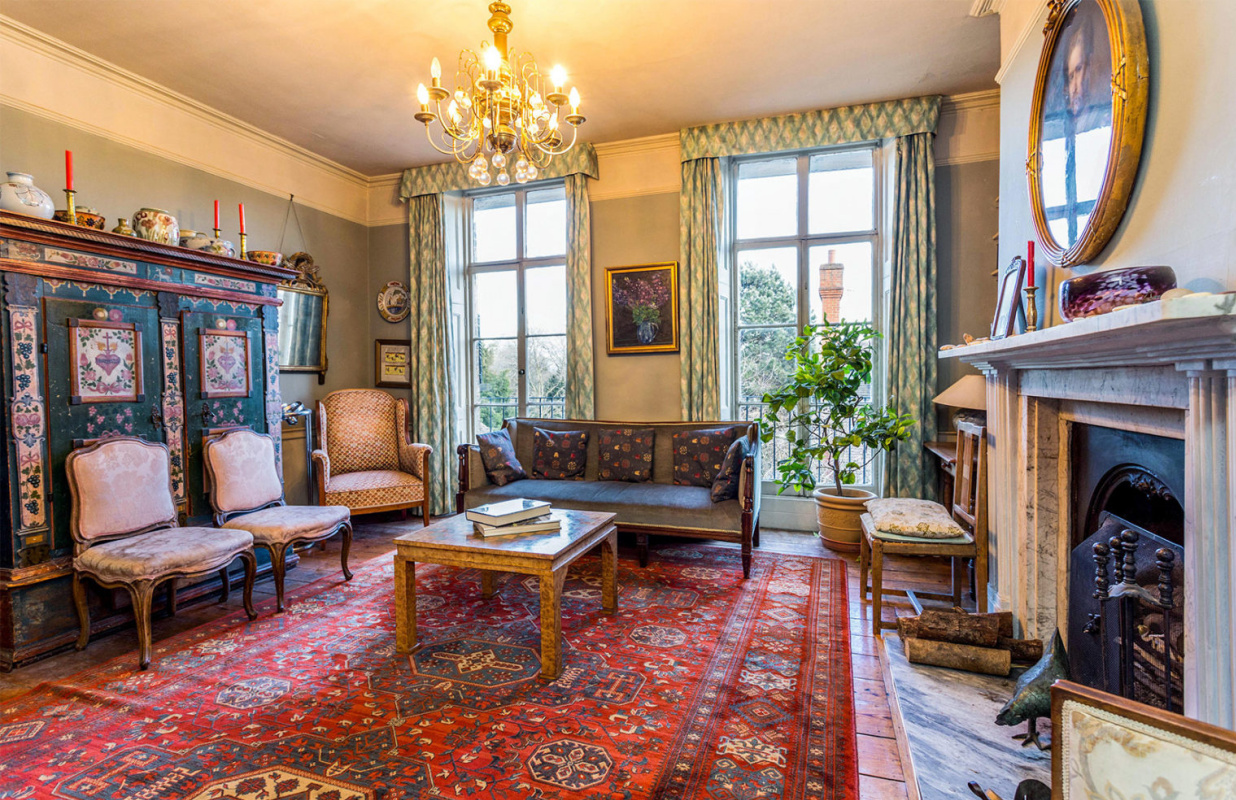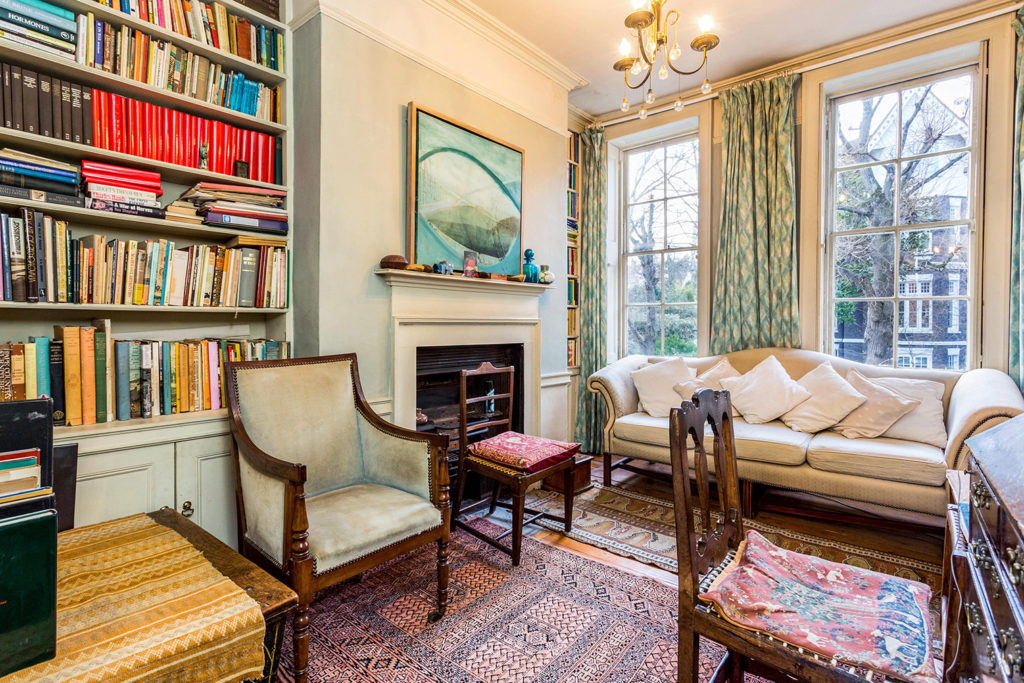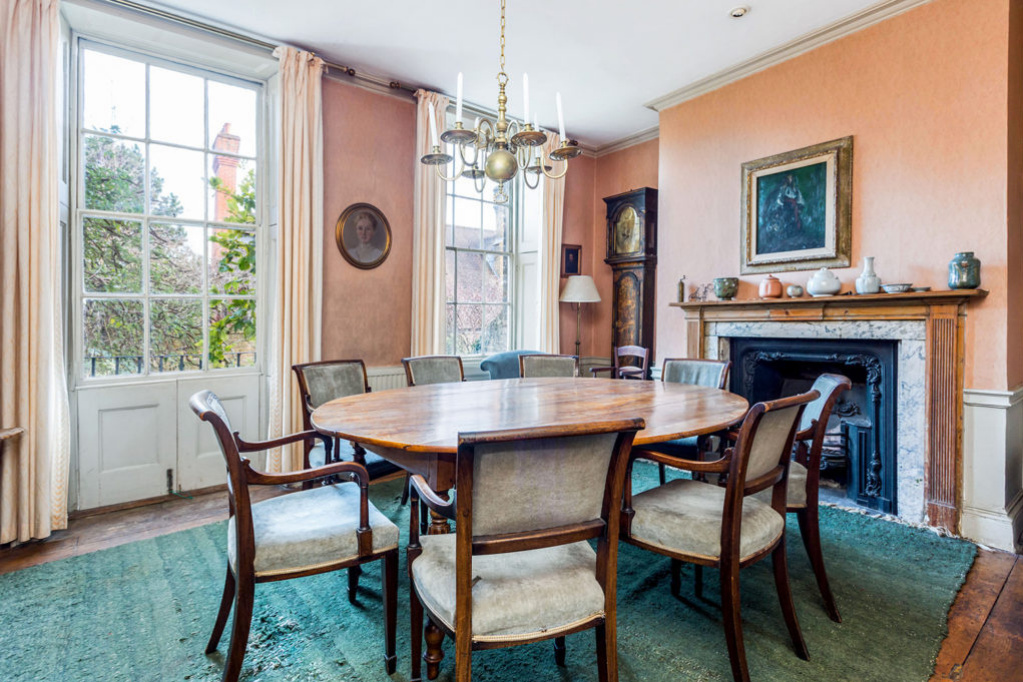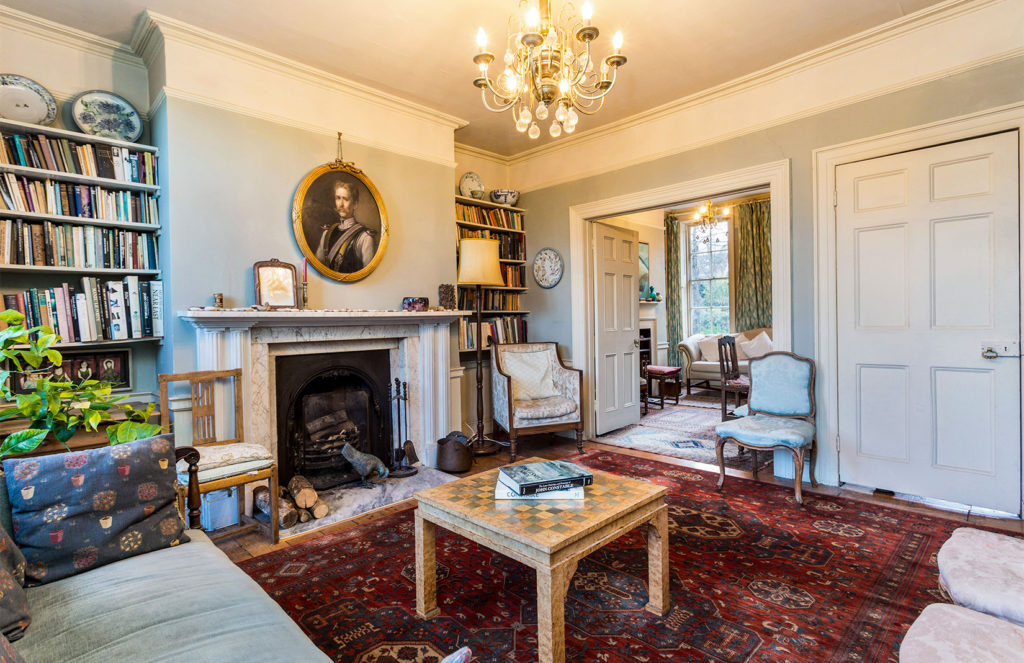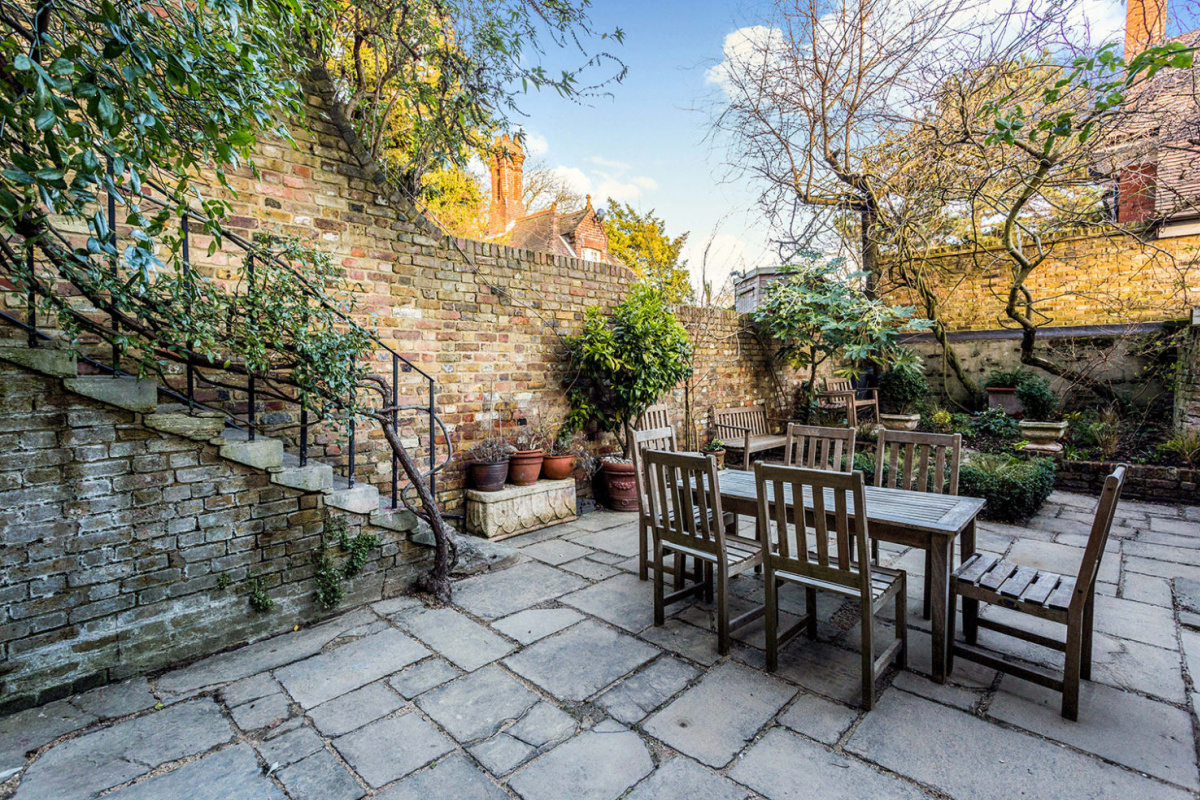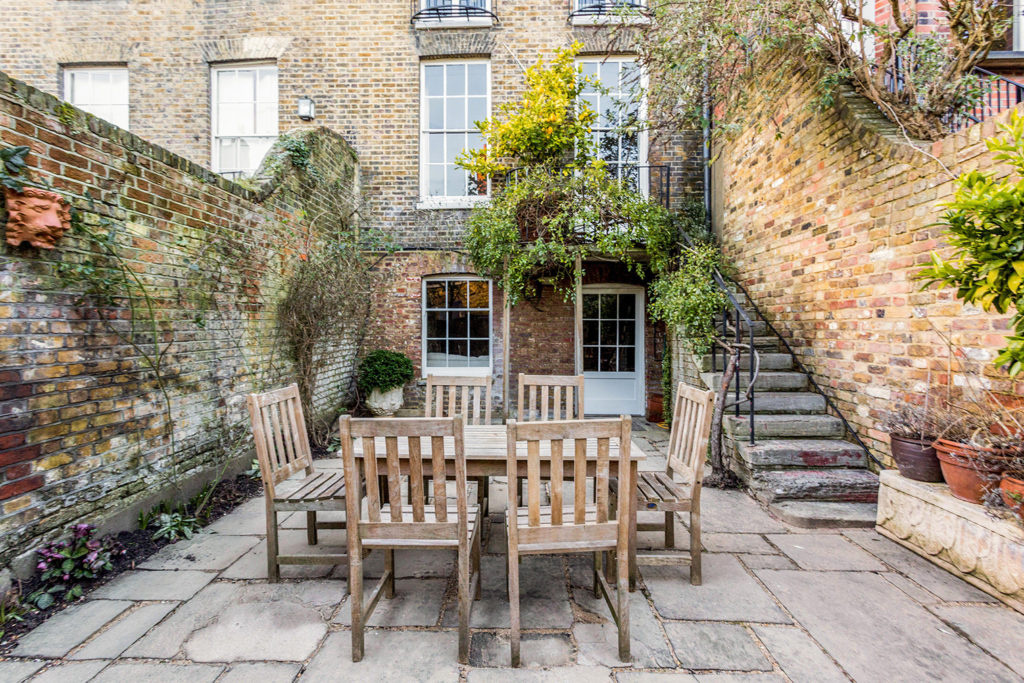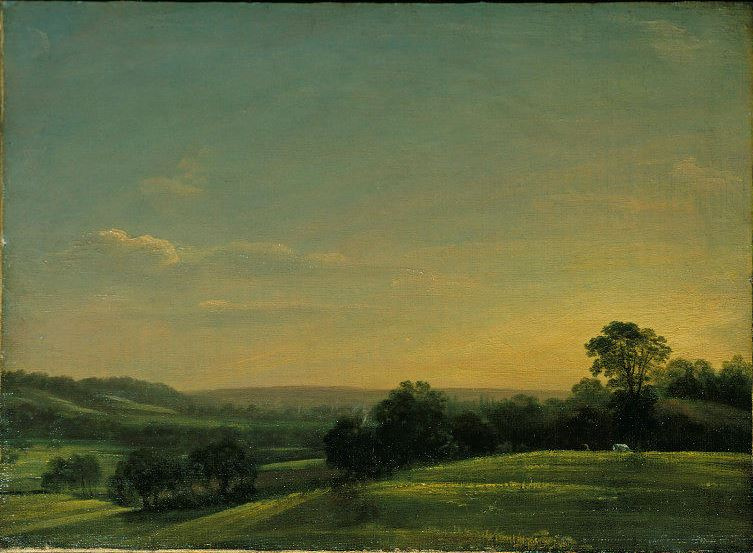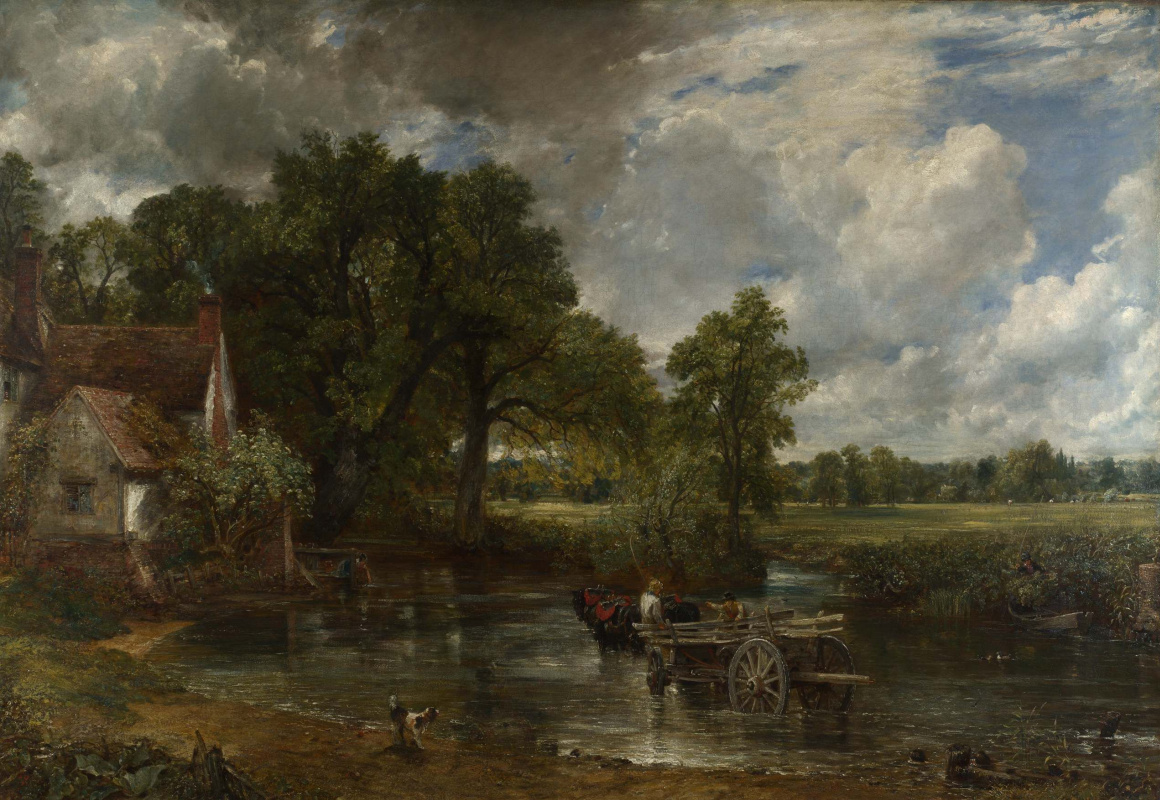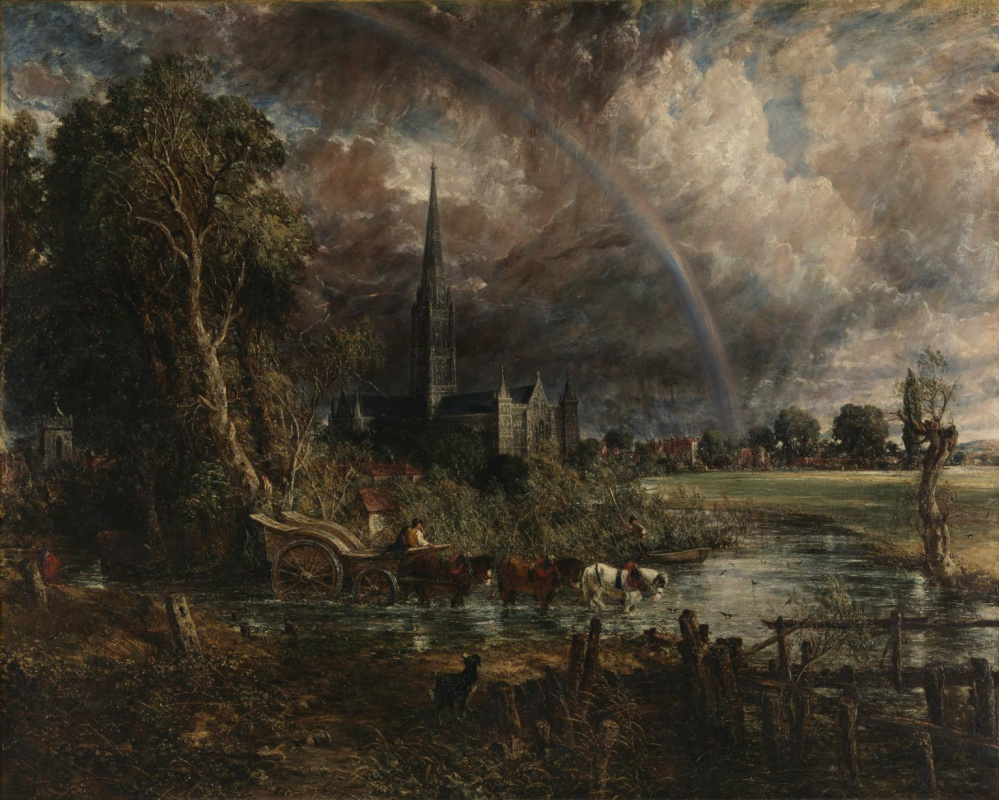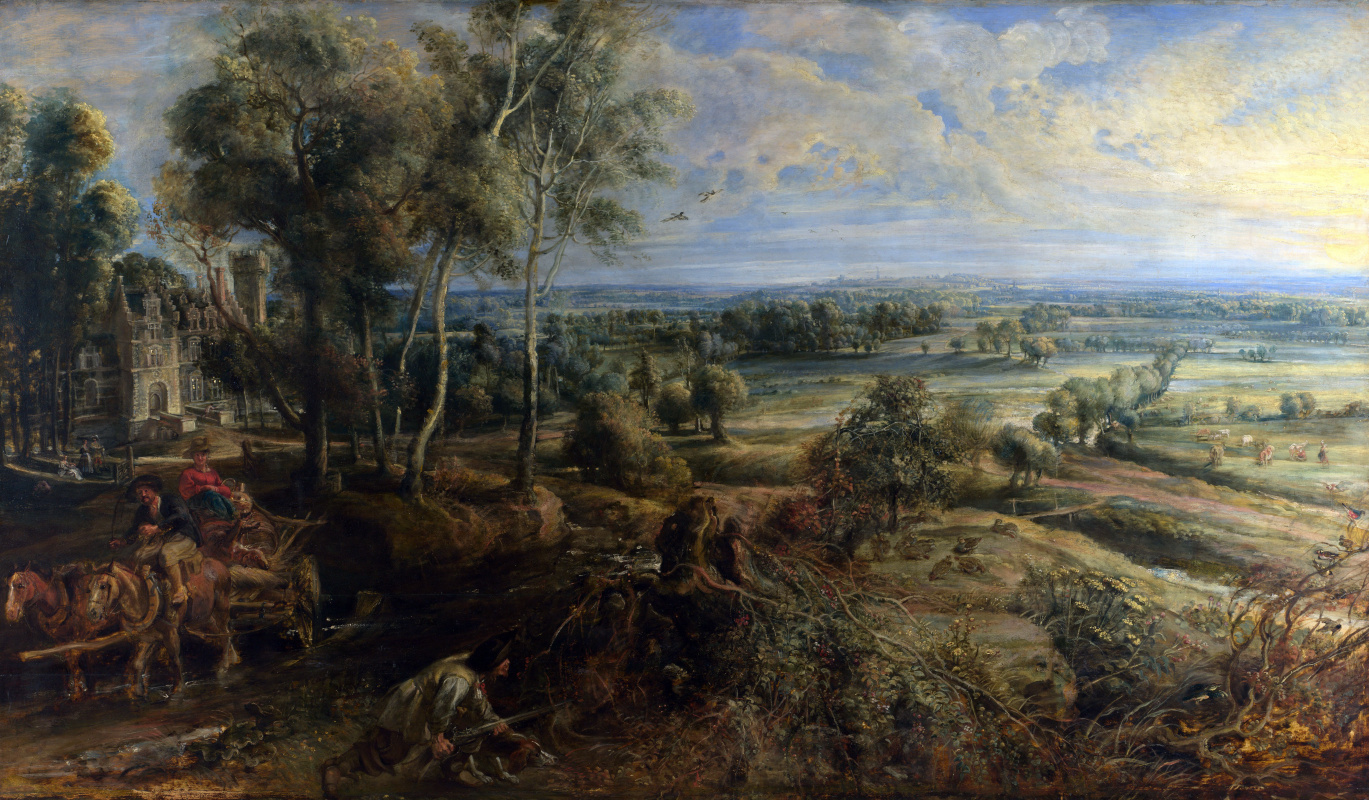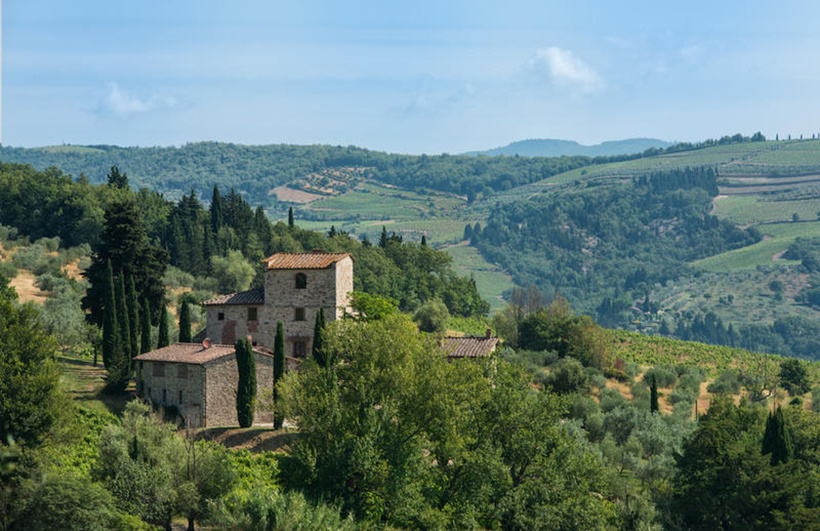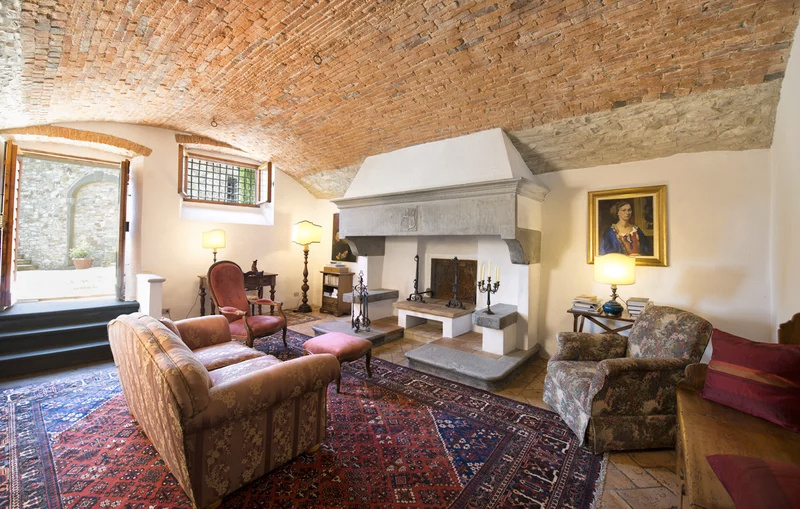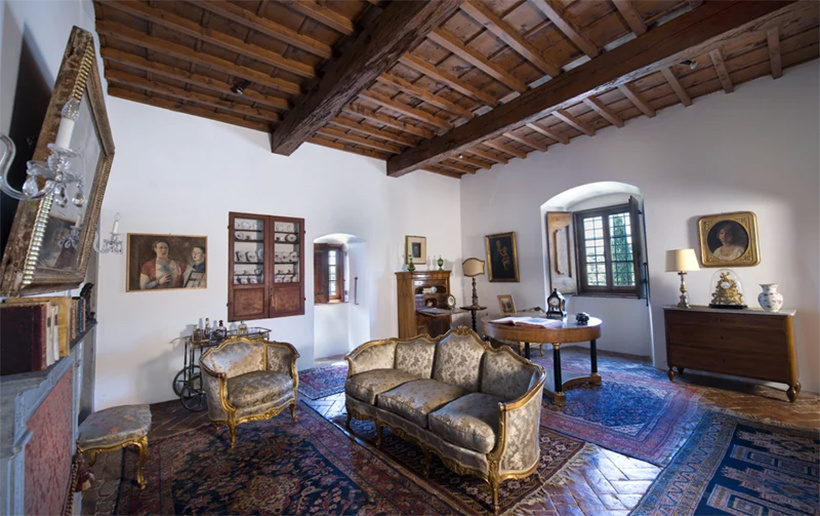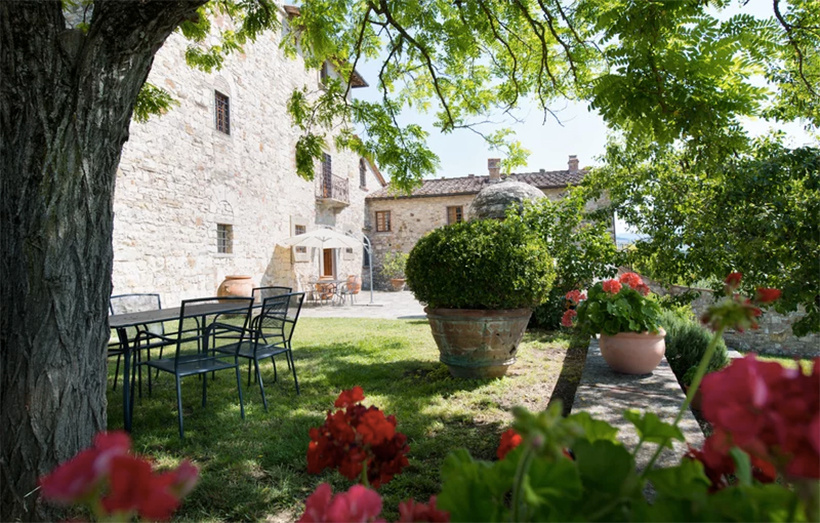The Georgian townhouse, built in the early 19th century on Well Walk, in London’s Hampstead, once belonged to famous English landscape
painter, John Constable. The Hampstead neighborhood was a rural village when the painter John Constable lived at 40 Well Walk. The house has hit the market for the first time in 30 years. The property is available now to buy for £4 million ($5,7 mln.).
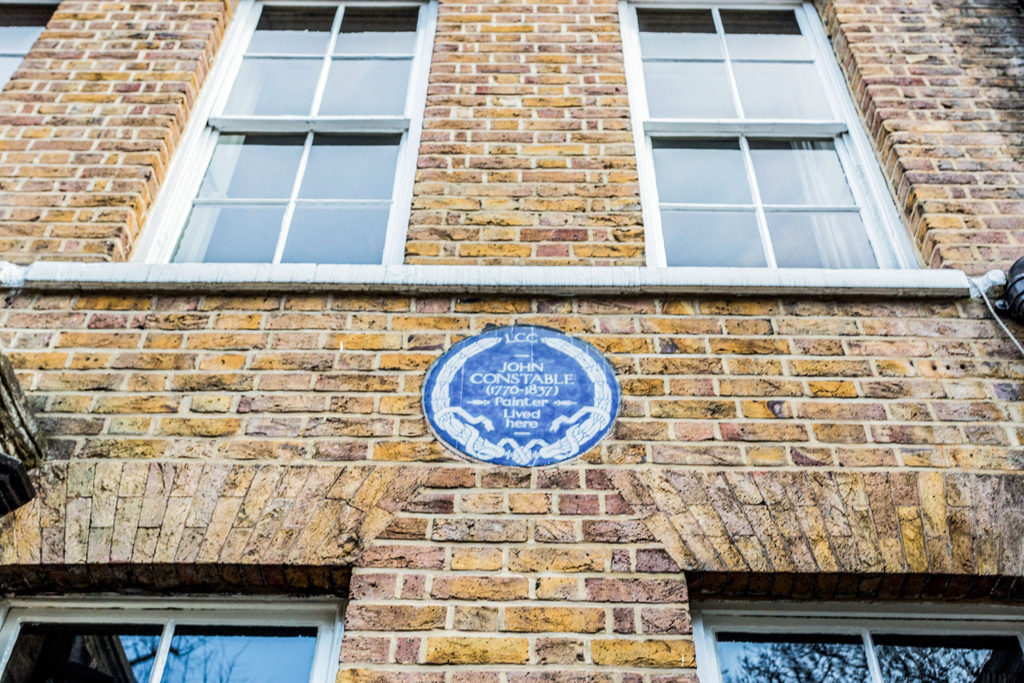
Number 40 Well Walk is a Grade II*-listed townhouse, designed and built in the early 19th century. The property is situated in one of Hampstead’s most sought-after streets which is lined with smart period buildings and is positioned within 200m of the open spaces of Hampstead Heath.
The English landscape painter spent each summer from 1819 — 1826 in Hampstead with his family, taking a house in the locality before making a permanent move to Well Walk in 1827. He has been living in the house for 10 years, until his death in 1937 at his studio on Charlotte Street in Central London.
The English landscape painter spent each summer from 1819 — 1826 in Hampstead with his family, taking a house in the locality before making a permanent move to Well Walk in 1827. He has been living in the house for 10 years, until his death in 1937 at his studio on Charlotte Street in Central London.
Awarded a blue plaque in 1923, the historic London property includes a small patio garden, and unfurls across five storeys. Its present owner is looking to downsize and has carefully maintained the house and its traditional layout. The house retained many of its original Georgian features from Constable’s time as a resident, including high ceilings and tall sash windows.
A kitchen and separate dining room fill the upper ground floor, with three reception rooms spread across the middle of the townhouse (the first floor living room has two balconies overlooking its walled garden patio).
Three bedrooms are found on the upper level, while a fourth lower ground floor bedroom is currently used as a study. Rooms have moulded cornicings, a mix of fireplaces and wooden floors.
A kitchen and separate dining room fill the upper ground floor, with three reception rooms spread across the middle of the townhouse (the first floor living room has two balconies overlooking its walled garden patio).
Three bedrooms are found on the upper level, while a fourth lower ground floor bedroom is currently used as a study. Rooms have moulded cornicings, a mix of fireplaces and wooden floors.

The small oil on board ‘sketch', titled View towards the back of a Terrace of Houses with Elder tree, was sold for £375,000 on March, 2018 at Roseberys. It came to auction with provenance to the former US ambassador to the UK, John Hay Whitney (1904−82). The picture, lost for 200 years, related closely a number of similar works made by Constable in c.1821−2.
The auctioneers spent four months researching the picture and had its authenticity confirmed by Anne Lyles from Tate Britain, who identified the picture at Roseberys as in keeping with two works once owned by the artist’s daughter Isabel Constable.
Left: 'View towards the back of a terrace of houses, with elder tree' by John Constable (1776−1837).
John Constable
1799, 76.2×63.8 cm
Being an icon of British art, John Constable is often cited as the artist who transformed the genre of landscape painting. His world-wide known paintings of English landscapes and depicted houses were created in Suffolk, known as Constable Country.
At the same time, Hampstead became a great focus for his works, whereby Constable made numerous studies of cloud formations and oil sketches. His artwork is on display at leading galleries worldwide including Tate Britain, The National Gallery and The V&A as well as Yale Center for British Art and The National Gallery of Art in the United States. His most famous paintings include Dedham Vale of 1802, The Hay Wain of 1821 and Hampstead Heath with a Rainbow of 1836.
At the same time, Hampstead became a great focus for his works, whereby Constable made numerous studies of cloud formations and oil sketches. His artwork is on display at leading galleries worldwide including Tate Britain, The National Gallery and The V&A as well as Yale Center for British Art and The National Gallery of Art in the United States. His most famous paintings include Dedham Vale of 1802, The Hay Wain of 1821 and Hampstead Heath with a Rainbow of 1836.
Night at Dedham Vale
1802, 31.8×43.2 cm
The Hay Wain
1821, 130.2×185.4 cm
Hampstead Heath with a rainbow
1836, 50.8×76.2 cm
While the value of house is around 18 times the price of the average English home, it is considerably less than the value of Constable’s most desirable paintings.
The following year, thanks to the joint efforts of five British galleries, the landscape "Salisbury Cathedral from the Meadows" (1930) was preserved for the nation. They have bought from the private collector one of the most significant masterpieces of the period of romanticism for 23.1 million pounds sterling. At the same time, its market price, according to some experts, was at least 60 million.
In 2012, The Lock, from 1824, was sold by Christie’s for record £22.4 million. This painting is one of a celebrated series of six large-scale canvases that also includes "The Hay Wain", arguably Constable’s most famous work that hangs in Britain’s National Gallery in London. "The Lock" was the last of the Constable series still in private hands, and was sold from the collection of Baroness Carmen "Tita" Thyssen-Bornemisza.
The following year, thanks to the joint efforts of five British galleries, the landscape "Salisbury Cathedral from the Meadows" (1930) was preserved for the nation. They have bought from the private collector one of the most significant masterpieces of the period of romanticism for 23.1 million pounds sterling. At the same time, its market price, according to some experts, was at least 60 million.

Constable’s The Lock, which has sold for £22,441,250 at Christie’s in London. Photo credit: John Stillwell/PA Wire PA
Salisbury Cathedral from the meadows
1831, 153.7×192 cm
‘We expect its appeal to be far-reaching, taking in those seeking a family home with straightforward access to amenities, transport and great schools as well as buyers captured by the prospect of living in the former home of one of the nation’s greatest ever artists.' - Peter Brooks, head of residential at Savills Hampstead said.

Grade II listed Georgian townhouse on Well Walk, in London’s Hampstead, where John Constable lived. Photo: Savills
Earlier it was reported that in Belgium the estate, which includes a 700-year-old stone manor Rubens briefly owned and three other 18th-century residences, hit the market. "Het Steen", known as the "Castle of Rubens", was the house, where the artist lived with his second wife Elena Faurman from 1635 until his death. The property, comprising a 33-room house and an area of eight hectares, has the status of an architectural heritage of Belgium. Its price is 4 million euros (about 5 million US dollars).
In 1636, the artist painted his estate in the painting "A View of Het Steen in the Early Morning" (below). It was one of several famous works the late Renaissance master painted during the five years he lived at Elewijt Castle.
At one time this landscape belonged to Sir George Beaumont, the patron of John Constable, who probably saw the work in the collection of a friend and was inspired by it.
In 1636, the artist painted his estate in the painting "A View of Het Steen in the Early Morning" (below). It was one of several famous works the late Renaissance master painted during the five years he lived at Elewijt Castle.
At one time this landscape belonged to Sir George Beaumont, the patron of John Constable, who probably saw the work in the collection of a friend and was inspired by it.
A View of Het Steen in the Early Morning
1636, 131.2×229.2 cm
Another sensational property sale has occurred also this month in Italy. Art lovers can get their hands on Michelangelo’s sprawling former Tuscan farmhouse, which has hit the market for €7.5m after a revamp.
Incorporating a tower built in 1047, the Chianti villa was bought by the Sistine Chapel painter in 1549 and remained in Michelangelo’s family for over 300 years. Its present owners have sensitively restored the artist’s home and its period features.
Unfortunately, there aren’t any original frescoes by the Florentine artist inside the 10-bedroom, stone villa (his designs for St Peter’s Basilica at the Vatican probably took priority over home improvements) but there are plenty of ornate touches.
Incorporating a tower built in 1047, the Chianti villa was bought by the Sistine Chapel painter in 1549 and remained in Michelangelo’s family for over 300 years. Its present owners have sensitively restored the artist’s home and its period features.
Unfortunately, there aren’t any original frescoes by the Florentine artist inside the 10-bedroom, stone villa (his designs for St Peter’s Basilica at the Vatican probably took priority over home improvements) but there are plenty of ornate touches.
Based on materials from Savills, NY times, Christie’s, Roseberys and other resources.
Title illustration: House with blue plaque on Well Walk, London. Photo: Savills
Title illustration: House with blue plaque on Well Walk, London. Photo: Savills






